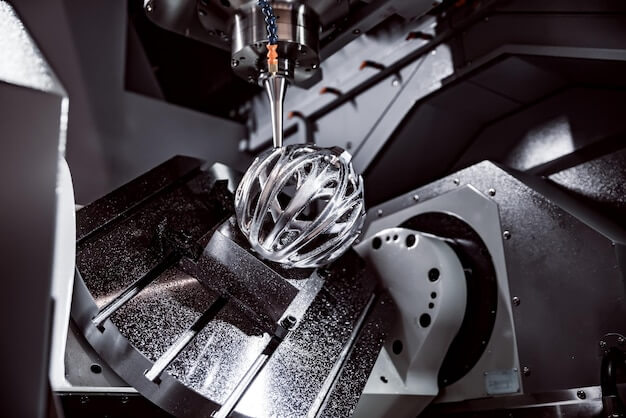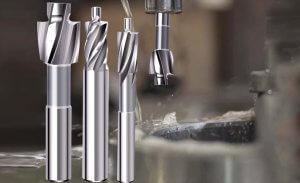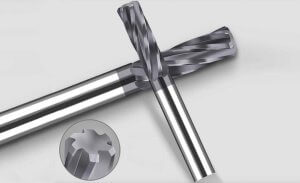Introduction to CNC Machining and Its Significance in Satellite Manufacturing
The process of Computer Numerical Control (CNC) machining plays a critical role in the production of advanced satellite components. As an automated manufacturing technique, CNC machining involves programmed control systems directing the movement and operation of complex machinery for precision fabrications. This technology is instrumental as it allows for highly accurate, reproducible designs, down to the minutest detail, which is essential in crafting sophisticated parts for satellites.
- Brief Explanation: CNC machining essentially utilizes digital blueprints to drive machine tools such as lathes, grinders or mills that subsequently cut and shape material into finished parts. Intricate programming ensures exceptional precision thereby reducing probability of human errors.
- Importance in Satellite Manufacturing: Satellites demand high-performance features fabricated with exactness considering their function of transmitting data from space. Any minute imperfection can obstruct their performance. Here, lies the significance of CNC machining as it enables consistent output quality, produces complex shapes unattainable by manual operations, presents flexibility in design changes and expedites production efficiency and speed.
Innovations in CNC Machining
The landscape of Computer Numeric Control (CNC) technology has recently undergone significant transformations due to various innovative approaches. One of the major advancements is the introduction of Additive Manufacturing (AM). AM, also known as 3D printing, employs sophisticated software instructions and digital design tools to build components by layering materials which substantially differs from traditional subtractive manufacturing methods. This cutting-edge technique offers versatility, precision, enhanced design possibilities, and efficient material utilization.
These technological innovations have a profound effect on the production of complex satellite components. For instance, antennas – vital parts facilitating communication for these space vehicles – can now be custom designed using CNC machines. Satellite companies are able to print intricate, lightweight antenna designs that were previously challenging or impossible to create with conventional methods. The advantage of employing AM allows designers to experiment with complex geometries, produce fewer parts that require assembly, adhere to stringent weight restrictions imposed on spacecraft equipment without compromising their performance capability. Thus, advanced CNC machining techniques deliver superior results in terms of accuracy, cost efficiency and speed in fabricating next-generation satellite components.
Innovative Applications of CNC Machining in the Manufacturing of Satellite Components:
- Step 1: CNC machining is revolutionizing the production of satellite components by offering high precision and customization for specialized parts.
- Step 2: The process enables the creation of intricate and tailored components that meet the stringent standards of the aerospace industry.
- Step 3: To explore CNC machining services for satellite component manufacturing, consider utilizing online CNC service for efficient and reliable production.
Challenges and Solutions in Implementing Advanced CNC Techniques for Satellite Components
In the rapidly advancing realm of satellite manufacturing, innovative Computer Numerical Control (CNC) techniques are crucial. However, manufacturers face several challenges during its implementation. One significant challenge is cost. Integrating new technologies into existing infrastructures requires considerable financial investment and training. These costs can be daunting, especially for small to mid-scale producers.
However, there are practical solutions to address these issues. For instance, manufacturers may opt for partial CNC integration initially, enabling them to spread out the costs over time. This step-wise approach not only helps with gradual technological adaptation but also facilitates staff training without disrupting workflow substantially. Additionally, technological partnerships could provide access to the latest CNC technology at a fraction of proprietary development costs.
- A notable strategy is investing in software platforms supporting both legacy machinery and newer CNC equipment. Such an investment ensures seamless interfacing between different generations of machining, reducing overall upgrade costs.
- Funding assistance or grants from governmental agencies focused on promoting advanced manufacturing skills can also help counteract high upfront costs.
- Moreover, seeking consultancy from CNC technology experts can prevents costly mistakes during the implementation phase, ensuring a smooth transition towards advanced manufacturing techniques.
Other Articles You Might Enjoy
- Choosing the Right CNC Machining Shop: Factors to Consider
Choosing the Right CNC Machining Shop: An Introduction In today's advanced manufacturing environment, Computer Numerical Control (CNC) machining plays a significant role. CNC machining is a process utilized in the…
- Understanding CNC Machining: MIG vs. TIG Welding and more( cnc machining services china Julie)
Computer Numerical Control (CNC) machining has remarkably revolutionized the manufacturing industry by offering precise, efficient, and versatile solutions that cater to a range of products. Within this realm of production…
- Understanding CNC Machining: TIG vs. MIG Welding and More( g code cnc Hedy)
Computer Numerical Control (CNC) machining is a manufacturing process that uses pre-programmed computer software to control the movement of machinery, enabling precision in production tasks such as cutting, milling, drilling,…








